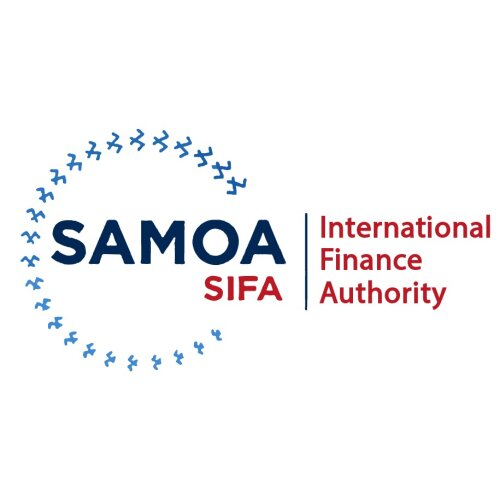Best Oil, Gas & Energy Lawyers in Apia
Share your needs with us, get contacted by law firms.
Free. Takes 2 min.
List of the best lawyers in Apia, Samoa
About Oil, Gas & Energy Law in Apia, Samoa
In Apia, Samoa, the field of Oil, Gas, and Energy is an emerging segment within the broader context of the nation’s economic development. While Samoa is not a major producer of oil or gas, it still plays a significant role, primarily in terms of energy policy, regulation, and importation of fuels. The energy sector is essential for maintaining Samoa’s infrastructure, supporting both public and private sectors, and facilitating sustainable growth. Understanding local laws and navigating regulatory frameworks can be complex, given the unique emphasis on sustainable and renewable energies, consistent with the country’s environmental goals and commitments.
Why You May Need a Lawyer
There are several situations in which individuals or businesses may require legal assistance in the realm of Oil, Gas & Energy in Apia, Samoa:
- Contractual Agreements: Whether you're a business involved in importing fuels or a company looking to invest in renewable energy projects, legal guidance can help ensure that contracts are well-drafted and enforceable.
- Regulatory Compliance: Understanding and complying with local regulations and environmental laws is crucial to operate legally within Samoa's energy sector.
- Dispute Resolution: Legal disputes may arise from contracts, joint ventures, or regulatory issues where professional legal advice can help resolve matters efficiently.
- Licensing and Permits: Securing the necessary licenses and permits requires navigating complex procedures, where legal assistance can be invaluable.
Local Laws Overview
Samoan laws related to Oil, Gas & Energy are primarily centered around environmental protection, sustainable energy practices, and import regulations. Key aspects include:
- The Petroleum Act: Governs the importation and handling of petroleum products, ensuring safety and compliance with health regulations.
- Renewable Energy Goals: Samoa is committed to its Renewable Energy Target, aiming for sustainability and reduced dependency on fossil fuels. Legal advice may be required to align projects with these national goals.
- Environmental Protection Act: Emphasizes the importance of protecting the environment, requiring energy projects to meet specific environmental standards and assessments.
Frequently Asked Questions
What are the primary sources of energy used in Samoa?
Samoa primarily uses imported petroleum for energy, but there is a significant push towards increasing the use of renewable energy sources like solar, wind, and hydropower.
How does the government regulate oil and gas importation?
The government has stringent regulations governed by the Petroleum Act, focusing on safety, environmental considerations, and compliance with health standards.
Are there opportunities for investment in renewable energy in Samoa?
Yes, the Samoan government supports investment in renewable energy projects as part of its commitment to sustainable development and its Renewable Energy Target.
What permits are required for setting up an energy-related business in Samoa?
Businesses need to obtain the necessary licenses and permits from government entities. Legal advice is recommended to help navigate these processes.
What is the role of the Electricity Regulator in Samoa?
The Electricity Regulator oversees the functioning of the electricity sector, including pricing and ensuring compliance with energy laws and regulations.
Can I handle my energy project disputes outside of court?
Yes, alternative dispute resolution mechanisms like mediation and arbitration are available in Samoa and are often encouraged for efficiency.
How does Samoa ensure environmental sustainability in energy projects?
All energy projects must comply with the Environmental Protection Act, which requires environmental impact assessments and adherence to sustainability standards.
What are the common legal challenges in the energy sector?
Challenges typically include regulatory compliance, securing permits, environmental concerns, and resolving contractual disputes.
Are there specific incentives for using renewable energy in Samoa?
The Samoan government provides various incentives and support for renewable energy projects to align with national sustainability goals.
How can I stay updated on new energy laws and regulations?
Regularly consulting with legal experts specializing in energy law in Samoa and subscribing to updates from relevant government bodies can help you stay informed.
Additional Resources
For more information and guidance, consider consulting the following resources and organizations:
- Ministry of Natural Resources and Environment (MNRE): Provides information on environmental regulations and energy initiatives.
- Electric Power Corporation (EPC): Offers insights into the electricity sector and regulatory developments.
- Samoa Chamber of Commerce & Industry: A valuable resource for business-related inquiries in the energy sector.
Next Steps
If you need legal assistance in Oil, Gas & Energy in Apia, Samoa, consider the following steps:
- Consult a Legal Expert: Seek advice from lawyers experienced in energy laws to guide you through complex legal landscapes.
- Documentation Preparation: Gather all necessary documents and information related to your case or business needs.
- Engage with Government Bodies: Reach out to relevant government departments for guidance on regulatory requirements and legal compliance.
- Stay Informed: Keep abreast of legal developments in the energy sector to anticipate changes and adapt accordingly.
Lawzana helps you find the best lawyers and law firms in Apia through a curated and pre-screened list of qualified legal professionals. Our platform offers rankings and detailed profiles of attorneys and law firms, allowing you to compare based on practice areas, including Oil, Gas & Energy, experience, and client feedback.
Each profile includes a description of the firm's areas of practice, client reviews, team members and partners, year of establishment, spoken languages, office locations, contact information, social media presence, and any published articles or resources. Most firms on our platform speak English and are experienced in both local and international legal matters.
Get a quote from top-rated law firms in Apia, Samoa — quickly, securely, and without unnecessary hassle.
Disclaimer:
The information provided on this page is for general informational purposes only and does not constitute legal advice. While we strive to ensure the accuracy and relevance of the content, legal information may change over time, and interpretations of the law can vary. You should always consult with a qualified legal professional for advice specific to your situation.
We disclaim all liability for actions taken or not taken based on the content of this page. If you believe any information is incorrect or outdated, please contact us, and we will review and update it where appropriate.











